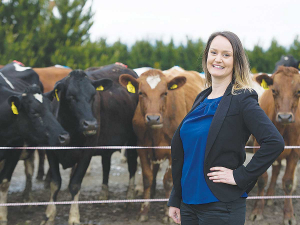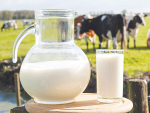The overnight Global Dairy Trade (GDT) auction saw another solid rise in prices across all products offered on the platform.
RaboResearch senior agricultural analyst Emma Higgins says lower milk production and fall-out from the Ukraine conflict are pushing prices further up.
Whole milk powder prices jumped 5.7% to US$4757/MT; skim milk powder prices rose 4.7% to US$4481/MT.
Butter, cheese and anhydrous milk fat (AMF) also recorded price rises; cheddar prices rose a whopping 10.9%.
Butter, AMF and Cheese prices have pushed higher into unchartered territory.
“This morning’s GDT auction saw soaring prices for dairy commodities, propelled by dwindling milk supplies, market uncertainty around the fall-out from the Ukraine crisis and ultimately what the combination will mean for global dairy trade,” says Higgins.
She notes that the milk supply situation in several key export regions continues to deteriorate. New Zealand milk production was down 6.1% year-on-year (YOY) in January 2022, while US milk flows took a hit of 1.6% YOY in the same period too.
The Ukraine conflict is also making markets nervous.
Higgins says although the physical fighting in Ukraine is localised, the effects of war will be far reaching and have a ripple effect on global communities and economies.
“Clearly it will be the Ukrainian and Russian people who will pay the most – be it physically, psychologically or economically. Still, we must consider the flow-on implications for global markets, and potential reverberations for our food producers.”
Russia and Ukraine are significant players in global trade of major commodities: grains, energy and metals. Combined, both countries are major exporters of grain (24% of global wheat, barley, corn), oil (5% of crude oil), natural gas (35% market share in Europe) and raw materials for fertiliser manufacturing (23% of world ammonia; 17% of potash; 14% of urea; & 10% of phosphates).
“These commodities are being swept up in the fighting – either physically or via the results of crippling sanctions on Russia.
“Rabobank anticipates more upside to come for global prices of grain, oil, natural gas and fertiliser over time. The flipside is that we also expect the same for food prices and inflation.”


















